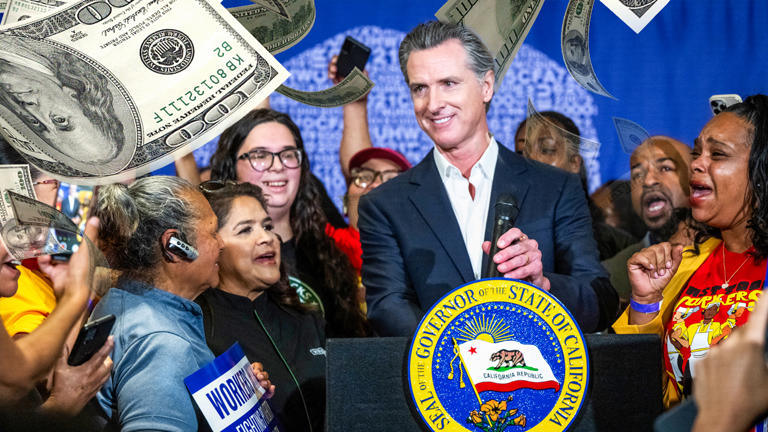Angela Marsden, a prominent restaurant owner based in Los Angeles, has recently vocalized her apprehensions surrounding California’s impending fast food minimum wage hike. With the passing of a new law by Governor Gavin Newsom in December, the minimum wage for food industry workers in California is set to skyrocket to $20 per hour, effective April 1, 2024. This significant increase, surpassing the minimum wage in other industries, has sparked widespread concern among small business owners like Marsden, who fear its adverse effects on their establishments.
In her impassioned remarks, Marsden underscored the plight of mom-and-pop shops, which have already weathered the storm of the COVID-19 pandemic. She argued that these smaller businesses, which have managed to survive challenging economic conditions, are now facing yet another hurdle in the form of steep labor costs. Marsden’s sentiments echoed those of many fellow business owners who foresee the potential for widespread layoffs and job losses as a direct result of the wage increase.
Drawing attention to the human impact of these changes, Marsden recounted the story of a friend who owns several McDonald’s franchises and is now forced to contemplate closing a significant portion of them due to the financial strain imposed by the new law. This anecdote serves as a stark reminder of the real-world consequences faced by business owners and their employees in the wake of such regulatory measures.
Marsden’s criticism extended beyond the legislation itself to Governor Newsom’s leadership, whom she accused of overseeing policies detrimental to California’s economic well-being. She lamented the wave of layoffs announced by major food chains in response to the wage hike, characterizing it as a “silent tax” that would ultimately burden consumers with higher prices. This, she argued, would disproportionately impact individuals across all socioeconomic strata, further exacerbating financial inequalities.
Moreover, Marsden suggested that Governor Newsom’s underlying agenda may involve incentivizing the adoption of automation and artificial intelligence (A.I.) solutions within the industry. By raising labor costs to unsustainable levels, policymakers like Newsom may inadvertently push businesses towards technological solutions as a means of survival. This, in turn, could fundamentally alter the landscape of the food service industry, potentially displacing human workers in favor of automated alternatives.
In conclusion, Angela Marsden’s impassioned plea serves as a poignant reminder of the complex economic challenges faced by small businesses in California. As the state prepares to implement its fast food minimum wage hike, Marsden’s concerns highlight the need for policymakers to consider the broader implications of their decisions on businesses, employees, and consumers alike. Only through thoughtful deliberation and collaborative efforts can California navigate the path towards a more equitable and sustainable future for all stakeholders involved in the food service industry.

